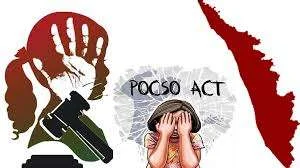Section 19 of POCSO Act came under judicial scrutiny on April 24, 2025, when the Supreme Court of India agreed to hear concerns regarding its mandatory reporting provisions. The petition, led by senior advocate Indira Jaising, raised alarm over the law’s requirement to report sexual activity involving minors, particularly when such activity is consensual between adolescents. The move has reignited a critical debate on balancing child protection and adolescent autonomy.
Understanding Section 19 of POCSO Act
Section 19 of the POCSO Act mandates that any individual—including children themselves—who suspects or is aware of any sexual offence against a minor must report it to the police. This mandatory reporting clause is aimed at ensuring immediate protection and legal recourse for child victims of sexual abuse.
While well-intentioned, the provision has raised alarms among legal experts, child rights activists, and healthcare professionals. The law does not distinguish between consensual sexual activity among adolescents and actual abuse, leading to unintended criminalisation of teenage relationships.
Why Was the POCSO Act Created?
The POCSO Act, enacted in 2012, was designed to fill critical gaps in Indian law regarding child sexual abuse. It followed India’s commitment to the UN Convention on the Rights of the Child (1992). Before the act, sexual crimes involving minors were addressed under vague provisions like “outraging modesty,” which lacked clarity and robustness.
Key features of the Act include:
- Gender neutrality: It protects both boys and girls.
- Mandatory reporting: Institutions and individuals must report abuse.
- Clear definitions: Terms such as “sexual assault” and “penetrative sexual assault” are clearly outlined.
- Child pornography: Defined and penalised for possession and distribution.
- Support systems: The POCSO Rules 2020 ensure interim compensation, special relief, and support personnel for child victims.
Concerns About Section 19 of POCSO Act
The mandatory nature of reporting, especially under Section 19, has triggered deep concern. Advocate Indira Jaising argued that this provision has led to a blanket criminalisation of consensual relationships between teenagers, who fall under the legal definition of children (below 18 years of age).
The result is a chilling effect: adolescents fear seeking medical help, counselling, or reproductive health services due to the risk of legal action. Instead of being supported and guided, they risk being dragged into the criminal justice system.
Health Implications for Adolescents
The provision could lead to detrimental health outcomes. Young girls, in particular, may avoid legitimate medical facilities out of fear of being reported and prosecuted. This can result in unsafe abortions, untreated sexually transmitted infections, and long-term psychological trauma.
Jaising emphasised the need for counselling over criminalisation, especially when dealing with voluntary sexual behaviour between peers.
Medical Professionals Caught in the Crossfire
Doctors and health workers are in a tough position. Under the law, they are bound to report any sexual activity involving minors, even if it’s consensual. However, their primary ethical responsibility is to maintain patient confidentiality and offer care.
This conflict between medical ethics and legal duty creates confusion and deters young people from seeking help. Many doctors express fear of legal repercussions themselves, complicating their role in safeguarding public health.
Need for Legislative Reforms
Legal experts and child rights activists believe that Section 19 of POCSO Act must be reformed to reflect the realities of adolescent development and sexual health. Suggested measures include:
Ensuring that the law distinguishes between abuse and mutual exploration among teens.
Creating age-appropriate legal exemptions for consensual acts between adolescents.
Focusing on education, awareness, and counselling over punishment.
Calls for Reform and the Way Forward
Experts are calling for a nuanced approach:
- Differentiate between consensual acts among peers and exploitative relationships.
- Introduce educational and counselling programs to guide adolescents.
- Empower healthcare professionals with legal clarity on their roles and responsibilities.
- Involve child welfare committees in assessing cases before invoking legal action.
Ultimately, reforms to Section 19 of the POCSO Act could foster a more compassionate legal and healthcare framework—one that protects children from abuse without punishing them for age-appropriate behaviour.



